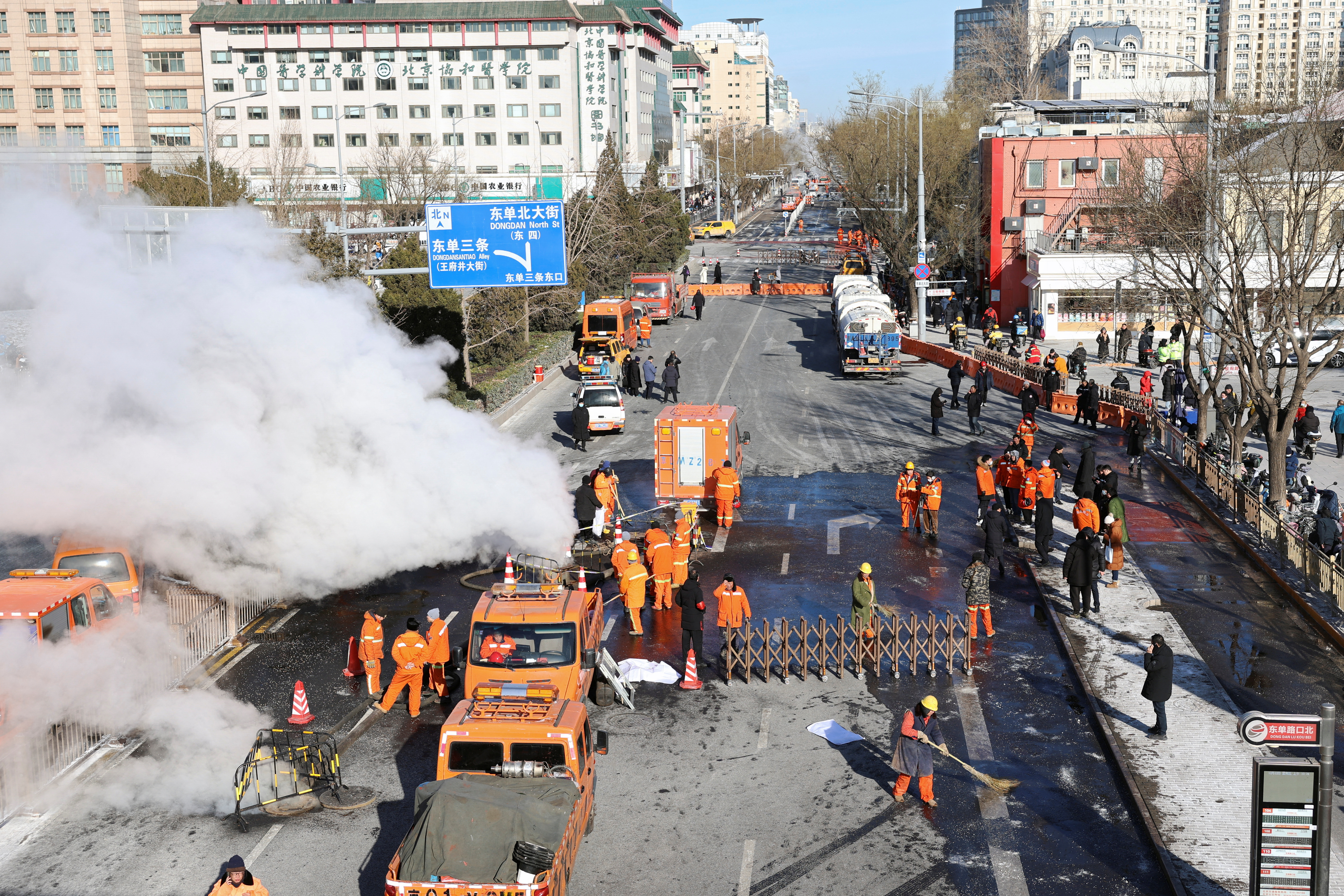Meteorologists in China report that Beijing had the coldest December since records began in 1951. This month, temperatures in the city have routinely dropped below -10 degrees Celsius.
Beijing has had a year of extremes: six months ago, it had its warmest June day on record, at just over 40 degrees Celsius.
We have already seen three rounds of exceptionally cold weather this winter in China.
According to the state-run China Daily news agency, a Beijing weather observatory recently recorded more than 300 hours of temperatures below freezing in less than two weeks.
The cold weather has impacted provinces across China, forcing some schools to close and causing transportation issues. Persistent cold weather has strained the energy supply in Henan province, with reports of some heating boilers failing.
The Chinese capital has also experienced record snowfalls.
Northern and northeastern China have seen extremely frigid temperatures in the last two weeks owing to stinging cold air blowing south from the Arctic, with some locations reaching negative 40 degrees Celsius (minus 40 Fahrenheit).
According to the state-backed Beijing Daily newspaper, as of Sunday, a Beijing weather observatory had recorded more than 300 hours of sub-zero temperatures since December 11, the most for the month since records began in 1951.
According to the article, this included nine straight days with lows below minus 10 degrees Celsius in the city, which has a population of more than 20 million people.
China’s National Meteorological Center reported record-low December temperatures at 78 meteorological stations around the country and the coldest average temperatures in northern and partly central China since 1961.
Several cities in Henan province, southwest of Beijing, could not meet heating demands.
According to official media on Sunday, heating boilers at one of Jiaozuo’s major suppliers failed, leaving certain communities desperately needing additional supplies.
The JiaoZuo WanFang Aluminium Manufacturing Company reportedly scrambled to fix the problem and expected normal service to resume on December 26. The report should have said how many boilers had failed.
Most businesses ceased heating services to prioritize residential supply except for vital service providers and nursing homes. However, according to official media reports, some residential compounds would encounter shortages throughout rehabilitation.
According to the BBC, two more cities in Henan, Puyang and Pingdingshan, have suspended heat supply to government departments and administrative institutions to prioritize household supply.
During the week, the strain on heating infrastructure was also obvious in Beijing, with massive steam leaks originating from fractured subterranean pipes.
Throughout the month, road and school closures and other snow-related precautions have been widespread in Beijing and numerous other cities. Over the weekend, warmer air began to flow north to south over the country, and temperatures began rising in many central and eastern China places.
According to China’s weather service, temperatures rose by more than 10 degrees Celsius on Sunday in certain parts of the country.
On Monday, December 25, temperatures of 3 degrees Celsius (approximately 37 degrees Fahrenheit) were forecast during the day, with overnight lows of minus 7 degrees Celsius. Forecasts for the coming week show that daytime high temperatures in the capital will be slightly above freezing but with similar sub-zero nightly lows.
Meanwhile, portions of northern Japan have received significantly more snow than usual for this time of year.
Over the last two days, certain locations have received heavy snow alerts, with up to a metre (39 inches) of snow falling in the Gifu and Hokkaido prefectures.
Temperatures in South Korea have ranged from 16 degrees Celsius to below -12 degrees Celsius in recent weeks, according to the Korean Meteorological Administration (KMA).
How citizens in neighbouring North Korea are dealing with harsh weather is still being determined.
One probable explanation for the cold spell is a weakening of the Polar Vortex, a band of frigid air that regularly circles the Arctic, allowing the air to migrate further south than usual.
However, scientists disagree regarding the role of climate change in this.








